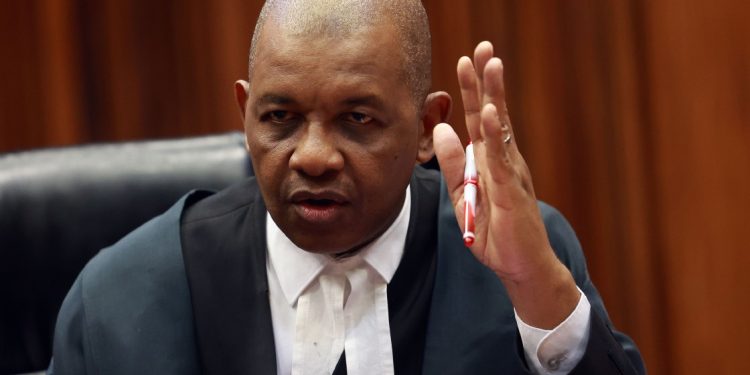- Former MK Party national organizer McDonald Mathabe refutes Advocate Dali Mpofu’s claims of helping establish the MK Party, stating Mpofu was uninvolved.
- Mathabe asserts that former President Jacob Zuma never sought Mpofu’s involvement in the party’s formation.
- The dispute highlights internal divisions within the MK Party as it aims to consolidate support and position itself in South African politics.
Former MK Party national organizer McDonald Mathabe has publicly denied claims by Advocate Dali Mpofu that he contributed to the MK Party’s formation. Responding to Mpofu’s statements, Mathabe accused him of lying and clarified that Mpofu had no involvement in the party’s founding. Mathabe further asserted that former President Jacob Zuma never intended for Mpofu to play any role in the establishment of the political organization.
“Mpofu is lying; he knows very well that Zuma never wanted him involved in the formation of the MK Party,” Mathabe declared. His comments follow Mpofu’s recent departure from the Economic Freedom Fighters (EFF) to join the MK Party, where he has claimed to have been instrumental in its founding.
Mpofu’s assertions in recent public statements suggested he played a key role in establishing the MK Party, a faction led by Zuma after leaving the African National Congress (ANC). Mathabe, however, firmly rejected these claims, describing them as a rewriting of history. He stated that Mpofu’s name was never part of any discussions or planning regarding the MK Party’s creation, which he said was aimed at mobilizing support among former ANC members and others aligned with Zuma’s vision for South Africa’s future.
Mathabe’s remarks have stirred controversy within the MK Party, especially as Mpofu’s unexpected defection from the EFF has raised questions about his true motives and previous involvement with the party. While some insiders speculated that Mpofu’s shift could be a political strategy, Mathabe’s statements cast doubt on the accuracy of Mpofu’s narrative.
This rift between Mathabe and Mpofu underscores underlying tensions within the MK Party as it works to establish a foothold in South African politics. Despite Zuma’s influence attracting certain voters, these internal disputes—particularly Mpofu’s contested claims—could complicate the MK Party’s efforts to broaden its appeal in the upcoming elections. As both Mathabe and Mpofu continue their public exchanges, the debate over their roles in the party’s future direction remains ongoing.






















